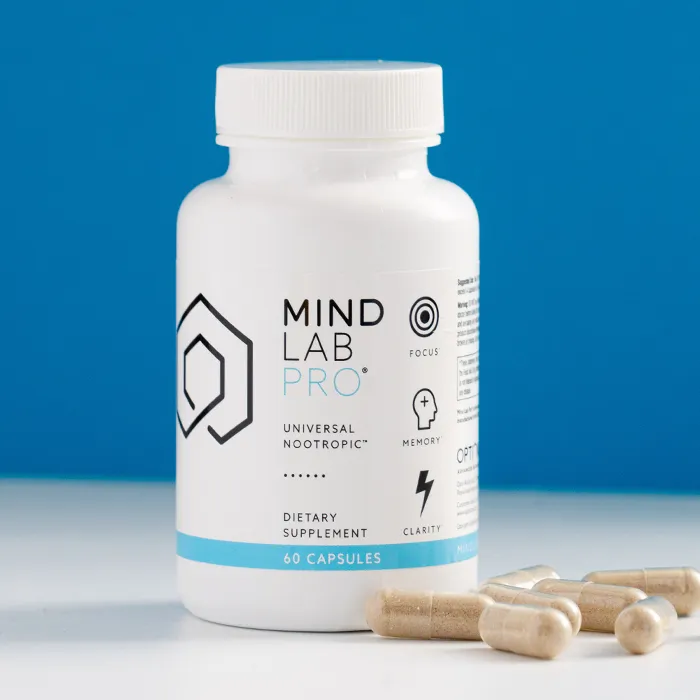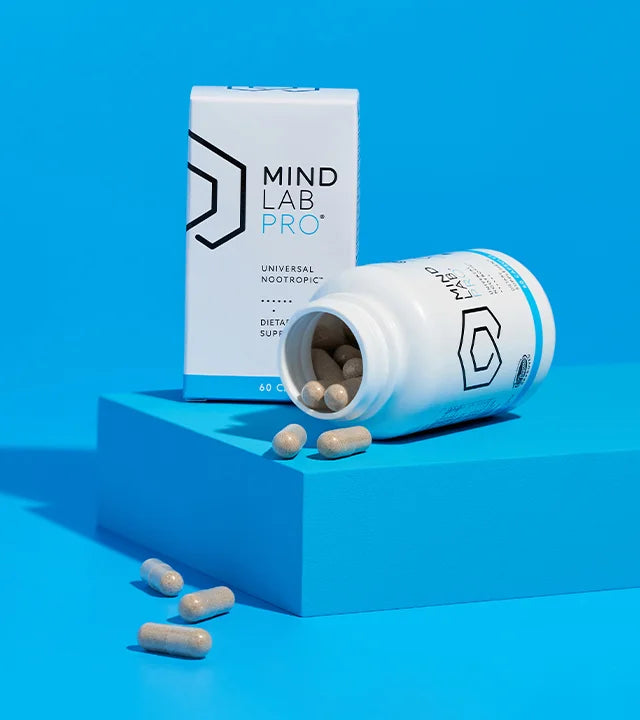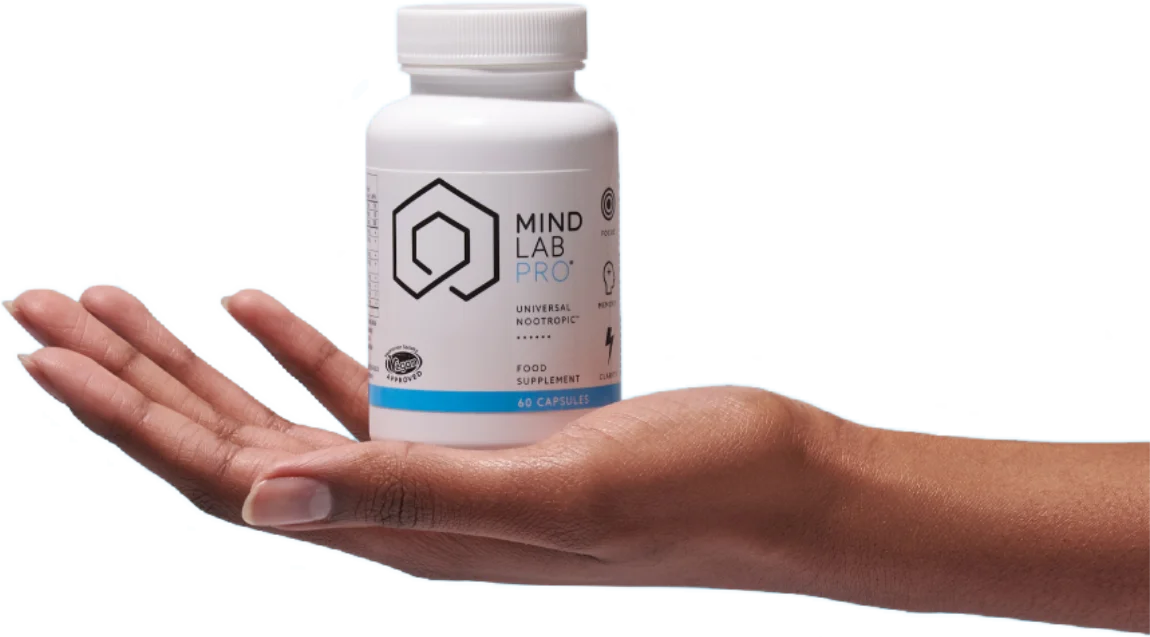If you’re researching choline + inositol, you likely want to know what this pairing actually does—especially for brain function, mood, liver support, and overall metabolic health. This guide explains what choline and inositol are, why they’re often combined, and what benefits people most commonly seek (focus, memory support, stress balance, healthy fat metabolism). You’ll also learn how to choose the right forms, what a reasonable daily intake looks like from food vs. supplements, and the key cautions so you can use the combo intelligently.
When it comes to supporting brain function, emotional well-being, and overall cellular health, few nutrient pairs complement each other as well as inositol and choline.
Though often categorized alongside the B vitamin family, these two nutrients each perform unique functions within the body -- yet their combined potential may be greater than the sum of their parts.
Both play a critical role in neurotransmitter production, cellular signaling, and nervous system wellness. Taken together, they may enhance mood balance, support memory and cognition, and offer key benefits during times of emotional or physical stress.
In this article, we’ll explore each nutrient individually -- and then dive into their potential effects when combined. Let's get to it!
Key Takeaways
- Choline is an essential, water-soluble nutrient vital for memory, muscle movement, and prenatal development.
- It supports the production of acetylcholine, a neurotransmitter linked to cognition, healthy nervous system function and neuromuscular function.
- Inositol supplementation helps regulate serotonin and other neurotransmitters, promoting mood balance, mental clarity, and healthy nerve signaling.
- Both nutrients play a role in cell membrane health and neurotransmission, making them critical for overall brain and body function.
- Combined supplementation of choline and inositol has shown promise in supporting emotional well-being, reproductive health, and stress resilience.
- Individuals with mood concerns, mental health conditions or high physical or mental demands may consider this nutrient duo.
- Health benefits of choline inositol beyond the brain include support for cardiovascular health and liver health.
- Choline inositol may help protect the liver against reversible hepatic abnormalities, such as liver fat accumulation including nonalcoholic fatty liver disease.
- Choline and inositol both support healthy insulin function, potentially helping to regulate insulin levels and improve insulin sensitivity. These insulin benefits may be helpful for concerns like PCOS and metabolic syndrome.
- Always consult a healthcare provider before starting supplementation, especially during pregnancy or breastfeeding.

Disclaimer:
This information is for educational purposes only and is not a substitute for professional medical advice. Always consult your doctor before taking choline, inositol, or any supplement -- especially if you have a medical condition or are taking medications. Any health concerns discussed here should be evaluated and managed by a qualified healthcare provider.
What is Choline?

Choline is a water-soluble essential nutrient that functions much like a B vitamin, but with extra key roles for human health. From powering memory and muscle movement to supporting healthy development in pregnancy, choline is involved in a wide array of biological processes that keep the body and brain running smoothly.
Key to choline’s importance is its role as a precursor to acetylcholine, a neurotransmitter involved in mind-body performance-driven functions like memory recall and muscle activation.
Stress along with intense mental and physical exertion are known to deplete acetylcholine, potentially diminishing cognitive and physical performance.
Getting enough choline helps ensure steady production of acetylcholine, which is why it’s often explored in relation to cognitive function, especially in the context of stress.
But choline isn’t just about the brain. It also plays important roles in physical endurance. Intense exercise is known to deplete choline levels in the body, which has made supplementation popular among athletes who want to maintain muscular performance during prolonged activity.
Did you know?
During pregnancy and early childhood, choline becomes especially critical parenteral nutrition. It works alongside folate (folic acid) to help prevent neural tube defects and may support healthy cognitive development in infants—both in the womb and during breastfeeding. Because the body can’t make enough choline on its own, it’s considered essential, meaning it must be obtained through diet or supplementation.
So what is the human choline requirement to aim for if you want to support overall wellness?
The recommended daily adequate choline intake ranges from 450 to 550 mg, depending on factors like age, sex, and pregnancy status. The upper safe limit of these dietary reference intakes is about 3,500 mg daily, and side effects are rare below this threshold. Higher doses, however, may lead to increased risk of mild issues like nausea or digestive upset.
Choline deficiency is a concern. According to the US National Health and Nutrition Examination Survey (NHANES) from the Food and Nutrition Board, only 11% of adults reach the daily recommended choline intake.(1)
Low plasma choline concentrations have been linked to liver dysfunction, muscle damage, cognitive decline and reproductive health concerns. In clinical settings, intravenous choline supplementation is sometimes used for patients with critical illness, liver disease, or total parenteral nutrition (TPN) to prevent or correct deficiency-related complications.
Top Food Sources of Choline (per 100g)

Upping your dietary choline intake is fairly easy. Here are some delicious choline-rich options to consider:
- Beef liver – 420 mg
- Eggs (especially yolks) – 250 mg per large egg (~140 mg per 100g)
- Chicken liver – 290 mg
- Salmon – 56–85 mg
- Beef (various cuts) – 80–90 mg
- Milk (whole) – 40–50 mg
- Soybeans (cooked) – 100 mg
- Kidney beans (cooked) – 45 mg
- Broccoli – 40 mg
- Quinoa (cooked) – 40 mg
- Brussels sprouts – 30–40 mg
You’ll find choline naturally in foods like eggs, meat, and nuts, but for those with dietary restrictions, choline supplements offer a convenient alternative. These are often available in capsules or tablets, sometimes paired with B-complex nutrients for added synergy.
Learn more about the top choline containing foods
If you're looking to boost cognitive clarity, enhance physical stamina, support a healthy pregnancy or otherwise tune up your overall wellness, choline is a foundational nutrient worth prioritizing.
And truly, no nootropic stack supplement is truly complete without some form of choline.
Which Choline Form Is Right for You?
If you’re considering choline supplementation, it’s worth knowing that not all forms deliver the same potential health benefits.
Here’s a quick breakdown of the three most common types, each with its own strengths:
- Choline Bitartrate is Good for General Support and Affordability - A basic, budget-friendly form of choline often used in standard multivitamins. - Supports liver function and acetylcholine production. - Low bioavailability for brain-related benefits—best for general wellness rather than cognitive performance.
- Alpha-GPC (Alpha-glycerylphosphorylcholine) Good for Physical Performance and Brain Boosting - A highly bioavailable form of choline that readily crosses the blood-brain barrier. - Shown to enhance power output in athletes and support cognitive sharpness. - Naturally occurs in the brain, making it a strong option for focus and performance.
- Citicoline (CDP-Choline) Best for Nootropic Cognitive Health - A dual-action choline source that delivers both choline and cytidine, which the body converts to uridine, a key player in brain cell membrane synthesis. - Clinically studied for memory, attention, mental energy, and neuroprotection. - Gold standard for brain health supplements due to its superior impact on cognitive function and neural regeneration.
Overall, for everyday wellness, choline bitartrate is OK. For physical and mental performance, Alpha-GPC brings solid benefits. But for true nootropic power and brain optimization, Citicoline is the best choline source -- backed by research and trusted by neurohackers worldwide.
Did you know?
Pantothenic acid, also called Vitamin B5, complements choline inositol. It is essential for making Coenzyme A, which is crucial for lipid metabolism -- including the synthesis and breakdown of phospholipids (like the ones formed by choline and inositol). It makes sense to ensure good B-Vitamin intake while supplementing choline inositol; a high-quality B-complex supplement or multivitamin supplement can also help.
Learn more about today's best multivitamin supplement
What is Inositol?
 Often grouped with the B vitamin family and sometimes referred to as vitamin B8, inositol is a naturally occurring, sugar-like compound found throughout the body -- most abundantly in the brain, liver, and heart.
Often grouped with the B vitamin family and sometimes referred to as vitamin B8, inositol is a naturally occurring, sugar-like compound found throughout the body -- most abundantly in the brain, liver, and heart.
While it's technically not a true vitamin (since the body can synthesize it in small amounts), its influence on human health is far-reaching and especially potent when it comes to brain function and emotional well-being.
Inositol acts as a key player in neurotransmitter activity, especially when it comes to the "feel good" brain chemical serotonin.
Serotonin is the brain chemical messenger closely tied to mood regulation. By improving the way serotonin and other neurotransmitters transmit signals, inositol helps sharpen neural communication and support emotional balance.
Research suggests that individuals with certain mood disorders may have lower inositol levels, which may reflect its importance in maintaining a healthy mental state.(2)
Inositol’s impact goes even deeper into the cellular level. It supports cell membrane integrity and fluidity, especially in the brain and nervous system, where it helps facilitate smooth, reliable nerve signaling.
It also contributes to healthy function across major organs and tissues, including the muscles, heart, liver, and nerves -- positioning it as a helpful nutrient for overall wellness.
Top Food Sources of Inositol (Estimated Myo-Inositol per 100g)

Inositol is naturally present in some fruits, grains and other dietary sources. Myo-inositol is its most common form. If you want to increase your inositol intake via diet, here are some of the richest food sources:
- Cantaloupe – 325 mg
- Oranges – 210 mg
- Brown rice – 95–100 mg
- Kidney beans / Navy beans – 80–130 mg
- Whole wheat bread – 70–90 mg
- Bran cereals – 70–100 mg
- Peanuts – 80 mg
- Lentils – 70–90 mg
- Oats – 50–80 mg
If you'd also like to supplement inositol, you have many options. Available in capsules, tablets, or powders, inositol supplements are often paired with choline to synergistically enhance brain function and neurotransmitter health.
Typical inositol doses in supplements range from 250 to 650 mg per serving. It's generally well-tolerated, with rare side effects including indigestion or fatigue at higher doses.
Whether you're seeking to support mental clarity, emotional stability, or overall cellular vitality, inositol is a dietary supplement to consider.
Possible Synergy of Inositol and Choline
Individually, inositol and choline offer support for mental health, central nervous system function, and cellular health.
But some research suggests potential benefits may be even greater when they are taken together, especially for mood support, brain function, and reproductive health.
Mood Balance and Mental Health

One area of possible synergy is in supporting healthy mood and emotional regulation. Inositol influences serotonin activity, while choline supports acetylcholine production. Together, they help to contribute to a balanced neurotransmitter environment -- a critical factor in mood stability.
Learn about nootropics for depression
Cognitive Function and Brain Support

Since both nutrients play direct roles in neurotransmission -- inositol via serotonin pathways and choline via acetylcholine -- taking them together may offer complementary cognitive benefits, including improved memory, focus, and attention span.
While more human research is needed in this specific area, early preclinical models and anecdotal clinical use suggest possible synergy in promoting mental clarity and learning capacity, especially under stress.
Learn more about the best nootropic supplements for enhancing cognitive function
Reproductive and Hormonal Health

Inositol and choline are also being studied in the context of female reproductive health. Choline is well-known for supporting healthy pregnancy for both mother and baby.(3)
Researchers have also reported on a beneficial effect of inositol in improving ovarian function in women with oligomenorrhea (infrequent periods) and polycystic ovaries.(4)
Choline and Inositol Supplements

Let's take a look at the supplement landscape for these nutrients, which can appear singly and in combination across several wellness categories:
Choline Supplements: Commonly marketed for memory and cognitive support, brain development (especially during pregnancy), liver health, fat metabolism and athletic performance (especially Alpha-GPC). Typical dosage ranges:
- Choline Bitartrate: 250–1,000 mg per serving
- Alpha-GPC: 300–600 mg per serving (provides ~40% choline)
- Citicoline (CDP-Choline): 250–500 mg per serving
Inositol Supplements: Commonly marketed for emotional balance and stress relief, serotonin regulation, nervous system support, reproductive health (especially PCOS). Typical dosage ranges:
- Myo-Inositol (most common form): 500–4,000 mg per serving
- D-Chiro-Inositol (less common but often combined with Myo): 50–100 mg
Choline + Inositol Combination Supplements: Commonly marketed for neurotransmitter balance, brain health, focus, emotional wellness, hormonal support (especially women’s health) Typical dosage ranges:
- Choline (as bitartrate or citrate): 250–500 mg - Inositol: 250–2,000 mg
- Often supplied in a 1:1 or 2:1 ratio (inositol:choline)
In addition to standalone formulas and 2-in-1 choline inositol supplements, choline and inositol may be found in:
Nootropic stacks for brainpower, combined with top nootropics including Lion's mane mushroom, L-Theanine and other ingredients.
Hormonal balance/PCOS support formulas, sometimes combined with folate, B6, B12, chromium and berberine
Mood support formulas, combined with B-complex vitamins, magnesium, or adaptogen herbs to help manage stress and promote emotional resilience.
Liver health supplements, especially with choline bitartrate or phosphatidylcholine, combined with milk thistle or NAC.
Top Nootropic Stack with Choline (as Citicoline, a.k.a. CDP-Choline)
Mind Lab Pro®: "Universal Nootropic" combines 11 brain-boosters, including 250 mg of Citicoline, the best form of choline for the brain. MLP unleashes a full-spectrum cognitive boost that can help all sorts of different brain functions. It is backed by 3 human studies showing cognitive benefits.(5,6,7)

Summary
Choline and inositol each bring numerous health benefits to the table.
Choline fuels memory, sharpens focus, and supports vital functions from muscle movement to prenatal health. Inositol, on the other hand, plays a key role in mood regulation, stress resilience, and healthy nerve signaling.
Taken on their own, these nutrients support a wide range of biological functions -- but combining choline and inositol may work even better.
Together, choline and inositol support a more balanced neurochemical environment, promoting clearer thinking, steadier mood, and more efficient communication between brain and body.
Whether you’re optimizing for cognitive performance, emotional well-being, or simply looking to optimize overall health, this duo makes a smart, science-backed addition to any supplement routine.
When choosing your formulas, consider Citicoline as your choline of choice for brain health, and look for clean, bioavailable forms of inositol -- especially if you're targeting mental clarity and mood support.
The science is promising, and the potential is powerful: Choline and inositol may indeed work better together -- unlocking benefits that combine to support wellness in your brain and body.
References
- Wallace, T. C., & Fulgoni, V. L., III. (2016). Assessment of total choline intakes in the United States. Journal of the American College of Nutrition, 35(2), 108–112. Link
- Chiappelli, J., Rowland, L. M., Wijtenburg, S. A., Muellerklein, F., Tagamets, M., McMahon, R. P., Gaston, F., Kochunov, P., & Hong, L. E. (2015). Evaluation of Myo-Inositol as a Potential Biomarker for Depression in Schizophrenia. Neuropsychopharmacology, 40(8), 2157–2164. Link
- Jaiswal A, Dewani D, Reddy LS, Patel A. Choline Supplementation in Pregnancy: Current Evidence and Implications. Cureus. 2023 Nov 8;15(11):e48538. Link
- Gerli S, Mignosa M, Di Renzo GC. Effects of inositol on ovarian function and metabolic factors in women with PCOS: a randomized double blind placebo-controlled trial. Eur Rev Med Pharmacol Sci. 2003 Nov-Dec;7(6):151-9. Link
- Utley A, Gonzalez Y, Imboden CA. The Efficacy of A Nootropic Supplement on Information Processing in Adults: A Double Blind, Placebo Controlled Study. Biomed J Sci & Tech Res 49(1)-2023. BJSTR. MS.ID.007746. Link
- Abbott-Imboden C., Gonzalez Y., Utley A. (2023). Efficacy of the nootropic supplement Mind Lab Pro on memory in adults: Double blind, placebo-controlled study. Human Psychopharmacology: Clinical and Experimental, e2872. Link
- O’Reilly, D., Bolam, J., Delis, I., & Utley, A. (2025). Effect of a Plant-Based Nootropic Supplement on Perceptual Decision-Making and Brain Network Interdependencies: A Randomised, Double-Blinded, and Placebo-Controlled Study. Brain Sciences, 15(3), 226. Link




